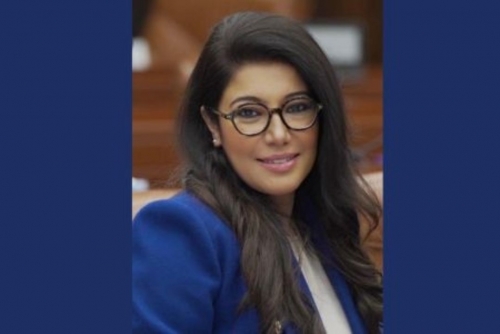MP Dr. Maryam Al-Dhaen has emphasized the urgent need for legislative measures to improve the living conditions of Bahraini families, particularly those facing financial challenges. She specifically discussed the “Khatwa” program, which aims to support low-income households. A recent study identified 133 families eligible for this program out of a total of 1,413 cases reviewed, indicating the necessity for targeted assistance. Dr. Al-Dhaen praised the Bahraini government for transparency in sharing the study’s findings and stressed the importance of ongoing collaboration between the legislative authority and the government to address these issues.
In her remarks, Dr. Al-Dhaen emphasized the importance of ensuring financial sustainability, particularly in the context of pension disbursements. She also highlighted the crucial role of the “Khatwa” program in empowering low-income families by providing them with skills development and entrepreneurial opportunities. The MP called for the introduction of training courses, access to commercial records, and support for home-based businesses to promote financial independence among these families. She urged all sectors to come together in ensuring that every family has the chance to thrive and contribute to Bahrain’s sustainable development.
With only 133 families meeting the criteria for the “Khatwa” program out of over 1,400 cases reviewed, it is clear that there is a pressing need for targeted assistance to those most in need. Dr. Al-Dhaen’s call for legislative action underscores the importance of addressing the challenges facing low-income households in Bahrain. By focusing on financial sustainability, skills development, and entrepreneurial opportunities, the “Khatwa” program can play a vital role in empowering these families and helping them achieve financial independence.
Collaboration between the legislative authority and the government is essential in addressing the needs of Bahraini families effectively. Dr. Al-Dhaen’s emphasis on transparency and cooperation demonstrates the commitment needed to make meaningful progress in improving living conditions for low-income households. By providing training, access to resources, and support for home-based businesses, the “Khatwa” program can create opportunities for these families to build a brighter future for themselves and contribute to Bahrain’s overall sustainable development.
In conclusion, Dr. Maryam Al-Dhaen’s advocacy for legislative measures to support Bahraini families highlights the importance of addressing the challenges faced by low-income households. The “Khatwa” program’s focus on financial sustainability, skills development, and entrepreneurial opportunities is crucial in empowering these families and helping them achieve financial independence. Through collaboration between the legislative authority and the government, transparency, and targeted assistance, Bahrain can work towards ensuring that every family has the opportunity to thrive and contribute to the nation’s sustainable development.











